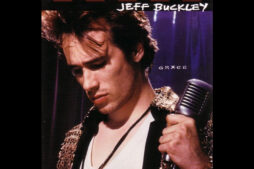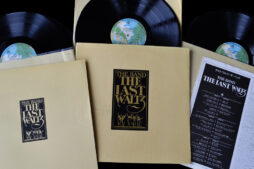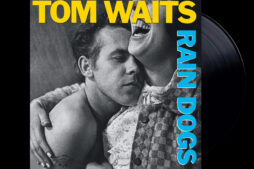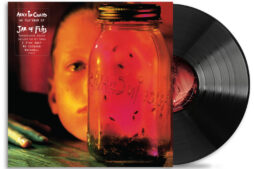Rickie Lee Jones – Rickie Lee Jones (Vinyl) Original Japanese Pressing
Warner Bros. Records (1979)
$50.00
Scarce Actual 1979 Japanese First Pressing! Includes 4-Page Insert, Lyrics. “Chuck E.’s In Love”, “Easy Money”, “Last Chance Texaco”, “Coolsville”…
Out of stock
CompareProduct Description
Scarce Actual 1979 Japanese First Pressing Of The Superb Debut LP By Rickie Lee Jones. Includes 4-Page Insert With Lyrics In Japanese (English Lyrics Are Printed On Back Cover). Labels Are Clean. Features “Chuck E.’s In Love”, “Easy Money”, “Last Chance Texaco”, “Danny’s All Star Joint”, “Coolsville” & More!
Condition – Vinyl: VERY GOOD PLUS! Couple of light surface marks, which do not affect play.
Condition – Cover: VERY GOOD PLUS! Shelf and edge wear.
Japanese vinyl pressings are highly sought after by audiophiles and collectors, due to their premium sound quality and beautifully presented packaging. The sonic quality of Japanese records is regarded as the best in the world. No wonder all the original Mobile Fidelity Sound Lab records were pressed in Japan! The covers are printed on better quality heavy stock paper too. Nice condition Japanese pressings are becoming scarcer ~ and therefore more collectable and valuable every year.
Side 1:
Chuck E.’s In Love
On Saturday Afternoons In 1963
Night Train
Young Blood
Easy Money
The Last Chance Texaco
Side 2:
Danny’s All Star Joint
Coolsville
Weasel And The White Boy’s Cool
Company
After Hours (12 Bars Past Midnight)









AMG –
An astounding debut album with master session musicians following Jones' wonderfully expressive soprano voice. With her expressive soprano voice employing sudden alterations of volume and force, and her lyrical focus on Los Angeles street life, Rickie Lee Jones comes on like the love child of Laura Nyro and Tom Waits on her self-titled debut album. Given the population of colorful characters who may or may not be real people that populate her songs -- Chuck E., Bragger, Kid Sinister, and others -- she also might have had Bruce Springsteen in her bloodline (that is, the Springsteen of his first two albums), and her jazzbo sensibility suggests Mose Allison as a grandfather. Producers Lenny Waronker and Russ Titelman, who know all about assisting quirky singer/songwriters with their visions, have brought in a studio full of master session musicians, many of them with jazz credentials, and apparently instructed them to follow Jones' stop-and-start, loud-and-soft vocalizing, then overdubbed string parts here and there. The music thus has a sprung rhythmic feel that follows the contours of Jones' impressionistic stories about scuffling people on the streets and in the bars. There is an undertow of melancholy that becomes more overt toward the end, as the narrator's friends and lovers clear out, leaving her "Standing on the corner/All alone," as she sings in the final song, "After Hours (Twelve Bars Past Goodnight)." It's a long way, if only 40 minutes or so, from the frolicsome opener, "Chuck E.'s in Love," which had concluded that he was smitten by "the little girl who's singin' this song." But then, the romance of the street is easily replaced by its loneliness. Rickie Lee Jones is an astounding debut album that simultaneously sounds like a synthesis of many familiar styles and like nothing that anybody's ever done before, and it heralds the beginning of a potentially important career.